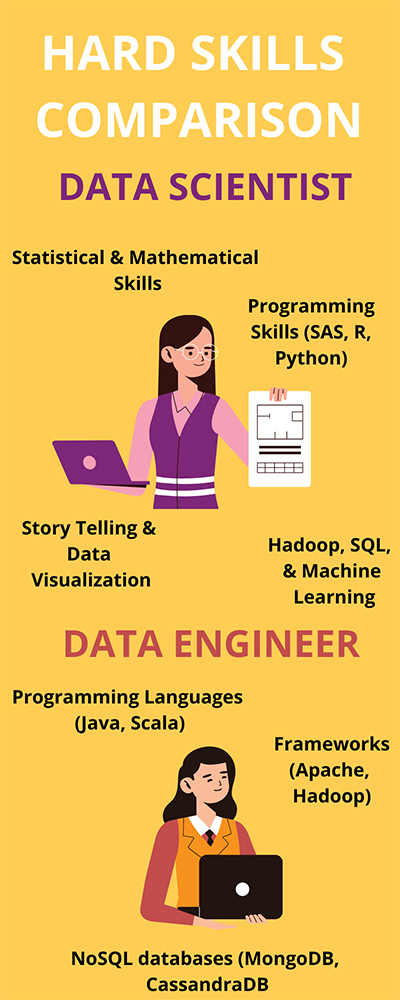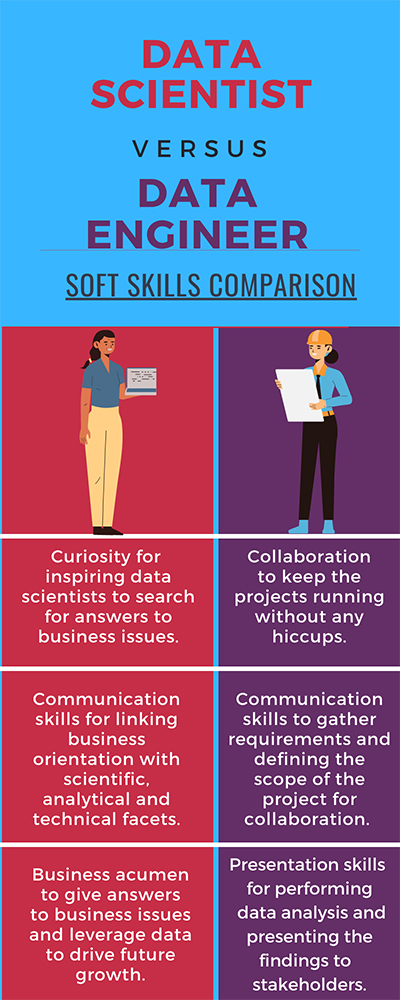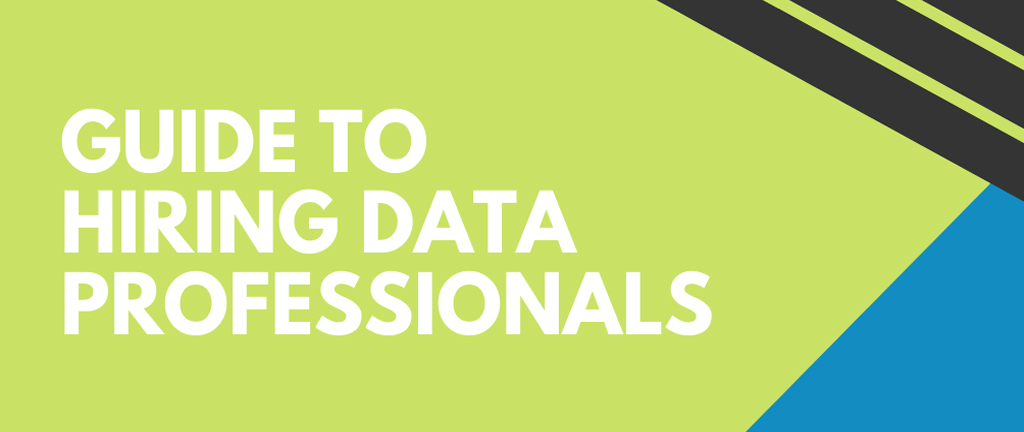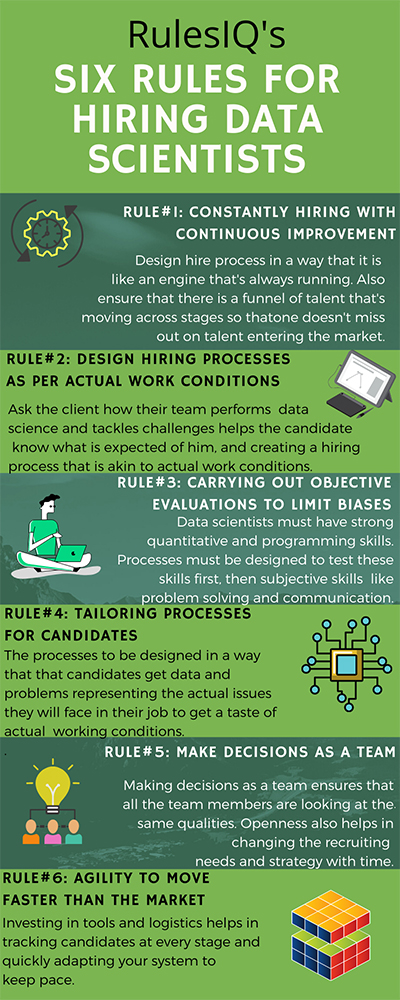We interact with various digital touch points throughout our day. Every time we
click, email, do a blog post, and much more, we generate data. Understanding and
leveraging the wealth of data is no doubt a key concern for every organization
today.
To derive insights from these massive datasets, professionals with
specialized skillsets are required. This is the key reason for the surge in demand
for data specialists including data scientists and data engineers in the talent
market. Presently, the demand for these professionals outweigh the supply.
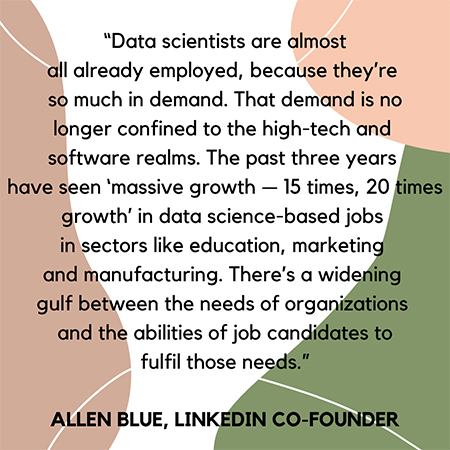
Difference between Data Scientist and Data Engineer
There are many criteria for understanding the difference between data scientist and
data engineer. But first, we must develop a basic understanding of what the two job
positions entail.
A data scientist cleans, polishes and organizes (big) data. They create advanced
analytics along with machine learning models and artificial intelligence. A data
engineer is responsible for the creation, development, construction, testing, and
maintaining of architectures including databases and large-scale processing systems.
Besides hard skills, soft skills are equally important for both these professionals
are employed by companies for augmenting their IT infrastructure by adding a human,
unique perspective coupled with specialized skill sets.
Data Scientists v. Data Engineers: Hard and Soft Skills Comparison
| |
Data Scientist |
Data Engineer |
| Job Function |
Drawing insights from raw data for deriving value from data using statistical
models
|
Creates APIs and frameworks to consume data from various sources
|
| Key Responsibility |
Optimizing performance of machine learning/statistical model
|
Optimizing performance of entire data pipeline
|
| Majors |
Math, applied statistics, operations research, computer science, physics,
aerospace engineering
|
Computer science, engineering
|
| Average Starting Salary (PA) |
$115k
|
$100k
|
| Industries Hiring |
Any industry in which large amounts of data are analysed
|
Any industry in which large amounts of data are collected and stored
|
| Ranked (compensation wise) |
Highest
|
Middle
|
RulesIQ believes that successful people make successful companies. Here are five
recruitment best practices that we follow:
1. Goal Setting: We believe that companies looking to hire talented data
professionals must first establish the goals the candidate has to fulfil and the
resources they can offer to help them in meeting those goals.
2. Setting Job Requirements: We work with our partners (clients) to
ensure that job
requirements are communicated clearly right away. This ensures that candidates
who
are a poor fit are filtered right at the outset.
3. Focus: We focus on the following key areas to shortlist the best data
professionals – technical skillsets, pace of work, and communication.
4. Relevance of Analytics: We make sure that our candidates know that
our clients
understand the relevance of analytics for an organization.
5. Budget Allocation: We ensure that the candidates are apprised that
our clients
have adequate budget for purchasing the right tools and, if required, are
willing to
hire supporting professionals like data engineers or product managers in their
job
roles.

